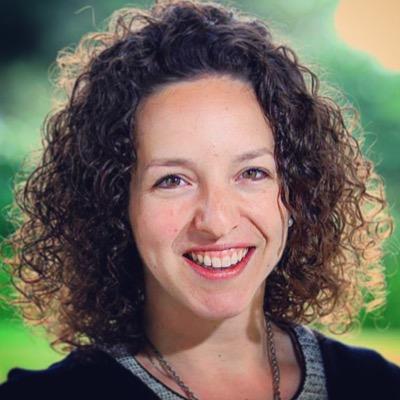Today, Mondelēz International, United Nations Development Program (UNDP), World Resources Institute (WRI) and TriplePundit came together for a conversation about cross-sector partnerships and their importance post-COP21, at #PartnersNow.
The Paris Agreement has inspired new partnerships, and its impending ratification will require continued and strong collaboration between international businesses, governments and non-governmental organizations (NGOs) to transform the way agricultural commodities are produced and traded. Rethinking the way our world produces agricultural commodities is central to slowing deforestation and acting against climate change.
Global snacking company Mondelēz International has teamed up with the UNDP’s Green Commodities Program (GCP) and the WRI-coordinated Global Forest Watch (GFW) team to not only transform its agricultural supply chains, but also work with other stakeholders on identifying and rolling out solutions to deep-rooted sustainability challenges across entire sectors.
Through its Cocoa Life program, Mondelēz International is investing $400 million to empower 200,000 smallholder farmers and create thriving cocoa communities in six cocoa origin countries: Ghana, Côte d'Ivoire, Indonesia, India, Brazil and the Dominican Republic. And through its Palm Oil Action Plan, it is working with UNDP’s GCP to engage the Indonesian government and other stakeholders to find solutions, and challenging its palm oil suppliers to drive deforestation out of their supply chains.
This palm oil work is part of a wider GCP effort, in which National Commodity Platforms are being fostered in 14 countries. Through these unique forums, government officials, company and civil society representatives work on solutions to overcome sustainability challenges in priority commodity sectors with support from leading companies like Mondelēz International. These forums also empower smallholders to share their concerns and get the support they need, which is central to reducing poverty. This is where the real and lasting differences will be made.
During #PartnersNow, we addressed the following topics, and more:
- How cross-sector partnerships are working at the national and international levels to increase collaboration and business sustainability;
- What elements are needed to make such cross-sector partnerships successful;
- How the COP21 talks validated existing partnerships focused on carbon mitigation between Mondelēz International, UNDP and WRI;
- How such engagement can lead to increased transparency and improved measurements of program risk and impact; and,
- What role technology plays in monitoring deforestation related to agriculture and commodities.
- Mondelēz International (@MDLZ)
- Jonathan Horrell (@HorrellJonathan) – Director, Sustainability
- UNDP’s Green Commodities Programme (@UNDPcommodities)
- Geraldine O’Grady (@OGradyGeraldine) – UNDP Project Lead, Taking deforestation out of commodity supply chains
- WRI’s Global Forest Watch (@GlobalForests)
- Sarah Lake (@GlobalForests) – Corporate Engagement Research Analyst
- James Anderson (@JamesWRI) – Communications Manager, Forests Program
- Sarah Mann (@SarahAlixM) – Community Innovation Coordinator
- The TriplePundit Team:
- Nick Aster (@NickAster) - Founder and Publisher
- Marissa Rosen (@MarissaR1) - Director of Social Media
- Jen Boynton (@JenBoynton) - Editor-In-Chief
- Mary Mazzoni (@Mary_Mazzoni) - Senior Editor
About the Partnerships Mondelēz International is working with the UNDP’s Green Commodities Programme (GCP) to improve the national economic, social and environmental performance of agricultural commodity sectors. GCP brings stakeholders from government, civil society and the private sector together to identify and implement solutions to deep-rooted sustainability challenges in key commodity sectors. Together, GCP and Mondelēz International are committed to replenishing the forests in Ghana with Cocoa Life and also focused on addressing palm oil issues in Indonesia.
Simultaneously, Mondelēz International is partnering with the WRI-coordinated Global Forest Watch (GFW) – an interactive online forest monitoring and alert system designed to empower people everywhere with the information they need to better manage and conserve forest landscapes. Mondelēz International will utilize GFW as a risk assessment tool – to monitor deforestation rates, identify where farms are in risk areas, flag potential issues, drive down deforestation in cocoa and palm oil areas, and track progress – with the goal of reducing its carbon footprint.
About Mondelēz International’s Cocoa Life Mondelēz International is the world’s largest chocolate company. Launched in 2012, Cocoa Life will invest $400 million by 2022 to empower 200,000 cocoa farmers and reach one million community members in six key cocoa growing origins: Cote d’Ivoire, Ghana, Indonesia, India, the Dominican Republic and Brazil. A vibrant cocoa supply chain is essential for the future of chocolate and Mondelez is leading its transformation by playing an active role in cocoa growing communities and getting directly involved on the ground. Cocoa Life is part of Mondelēz International’s ‘Call For Well-being’ that brings together its employees, suppliers and community partners to make a positive impact on our world.
About the United Nations Development Programme’s (UNDP) Green Commodities Programme (GCP) GCP brings the private and public sectors together to devise national responses to deep-rooted sustainability challenges in high-value agricultural commodity sectors. Through National Commodity Platforms, different players devise clear public policies; legal frameworks; clarity around land-use planning; effective ways of enforcing laws; finance; and support that allows farmers’ to improve their production techniques.
About Global Forest Watch (GFW), coordinated by World Resources Institute (WRI) The GFW is an interactive online forest monitoring and alert system designed to empower people everywhere with the information they need to better manage and conserve forest landscapes. GFW uses cutting edge technology and science to provide the timeliest and most precise information about the status of forest landscapes worldwide, including near-real-time alerts showing suspected locations of recent tree cover loss. GFW serves a variety of users including governments, the private sector, NGOs, journalists, universities, and the general public.

Marissa is the Owner of Climate Social, LLC. She holds a bachelor's degree in communications from Mizzou and a master's in environmental studies from UPenn.














